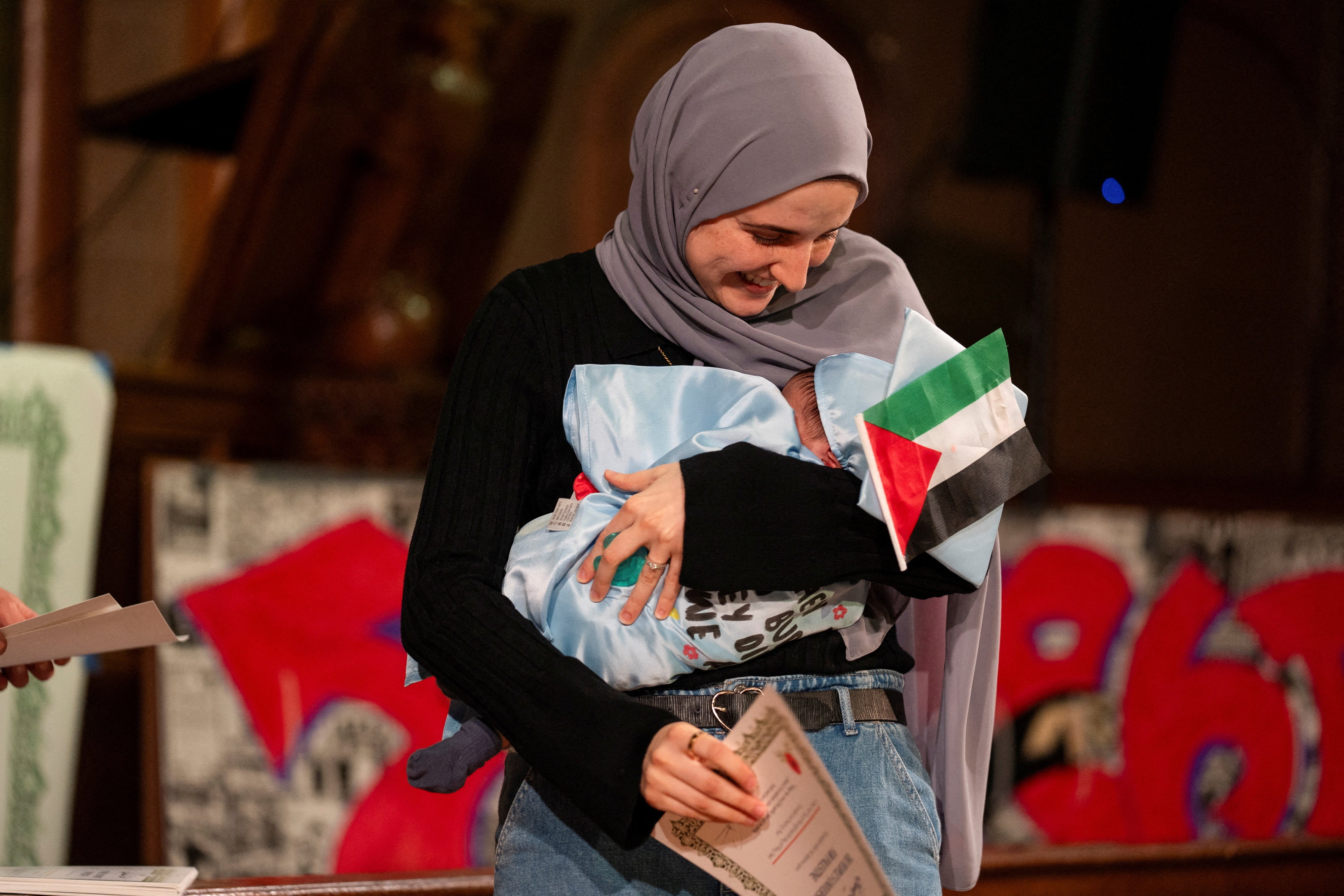ARTICLE AD BOX
Mahmoud Khalil, the Columbia University student activist who was arrested by federal agents for his role leading pro-Palestine demonstrations on campus, met his month-old son for the first time before a crucial immigration court hearing on Thursday.
Khalil has been imprisoned in an Immigration and Customs Enforcement detention in Louisiana for more than two months. His wife Noor Abdalla gave birth on April 21.
Donald Trump’s administration initially denied Khalil a chance to see his wife and son under a no-contact policy from ICE officials and the private prison group that runs the detention facility, citing unspecified “safety concerns” surrounding their visit.
A federal judge eventually intervened, granting them permission for a “single, joint meeting … under “conditions (including as to length of time and confidentiality) that are appropriate for a substantial attorney-client meeting.”
Attorneys for Khalil confirmed the visit to The Independent on Thursday morning.
Khalil was stripped of his green card and arrested in front of his then-pregnant wife in their New York City apartment building on March 8. He was sent to an ICE detention center in Louisiana, roughly 1,300 miles away from their home in New York.
Court filings show his attorneys repeatedly requested permission from ICE for his temporary release to be present for his child’s birth, which they denied. Khalil was “open to any combination of conditions,” including wearing an ankle monitor.

On April 11, Louisiana immigration judge Jamee Comans determined Khalil can be deported from the United States based on Secretary of State Marco Rubio’s claim that Khalil’s Palestinian advocacy presents a threat to U.S. foreign policy. Judge Comans called the government’s argument “facially reasonable.”
Khalil’s arrest has sparked international outrage and fears that the Trump administration is crushing political dissent against Israel’s devastating campaign in Gaza and U.S. support. Rubio has revoked hundreds of student visas over campus activism, leading to several high-profile arrests of international scholars.
The administration has accused Khalil of “antisemitic activities” and supporting Hamas, which he has flatly rejected. Officials concede he has not committed any crime, but claim he can be removed over what Rubio has characterized as “potentially serious adverse foreign policy consequences.”
A two-page memorandum submitted to the immigration court as evidence for his removal admitted his protest activities were “lawful” but argued that letting him stay in the country would undermine “U.S. policy to combat antisemitism around the world and in the United States, in addition to efforts to protect Jewish students from harassment and violence in the United States.”
Khalil and his legal team argue his arrest and detention — and attempted removal from the country, which is currently blocked by court order — are retaliatory violations of his First Amendment right to freedom of speech and his Fifth Amendment right to due process of law, among other claims.
A separate but parallel case over Khalil’s arrest is also playing out in a federal courtroom hundreds of miles away in New Jersey.

Khalil, who is Palestinian, grew up in a refugee camp in Syria. He entered the United States on a student visa in 2022 to pursue a master’s degree in public administration, which he completed last year.
In addition to missing the birth of his child, he also missed his graduation from the university this month.
Khalil is “at risk of harm anywhere in the world” following the government’s allegations against him, according to his attorney Johnny Sinodis, speaking to reporters before the hearing.
Khalil’s lawyers are trying to end his case altogether, arguing to the judge in an immigration court hearing in Jena, Louisiana that federal agents arrested him without a warrant on spurious grounds. The government has argued that Khalil tried to flee during his arrest, but video footage from the incident does not show any such attempt.
There is “no evidence presented whatsoever” and no testimony to back up the government’s claims surrounding his warrantless arrest and allegations that Khalil tried to escape, “merely totally false statements from the government,” according to attorney Marc Van Der Hout.
The case “should be thrown out,” he said.








 English (US) ·
English (US) ·